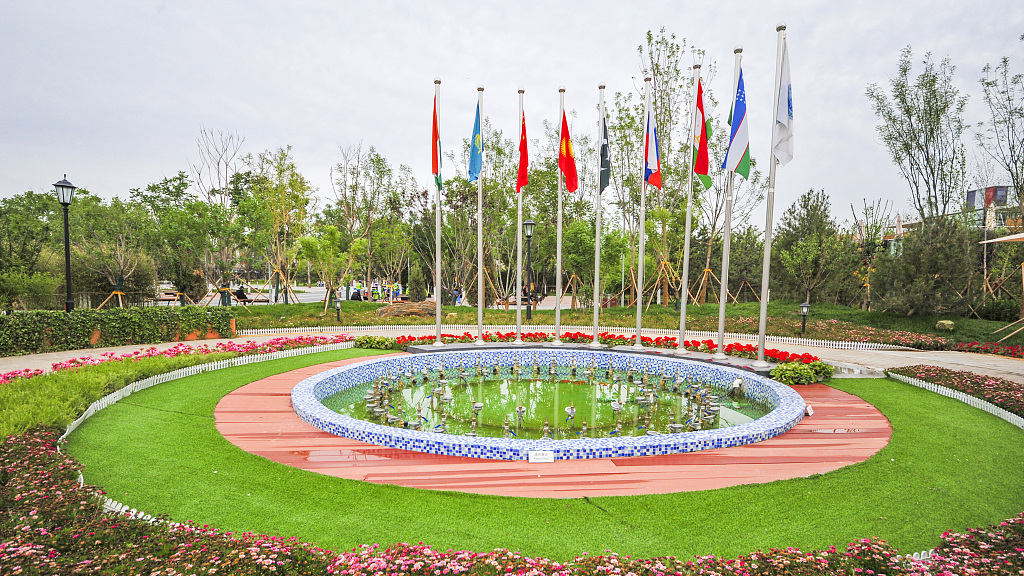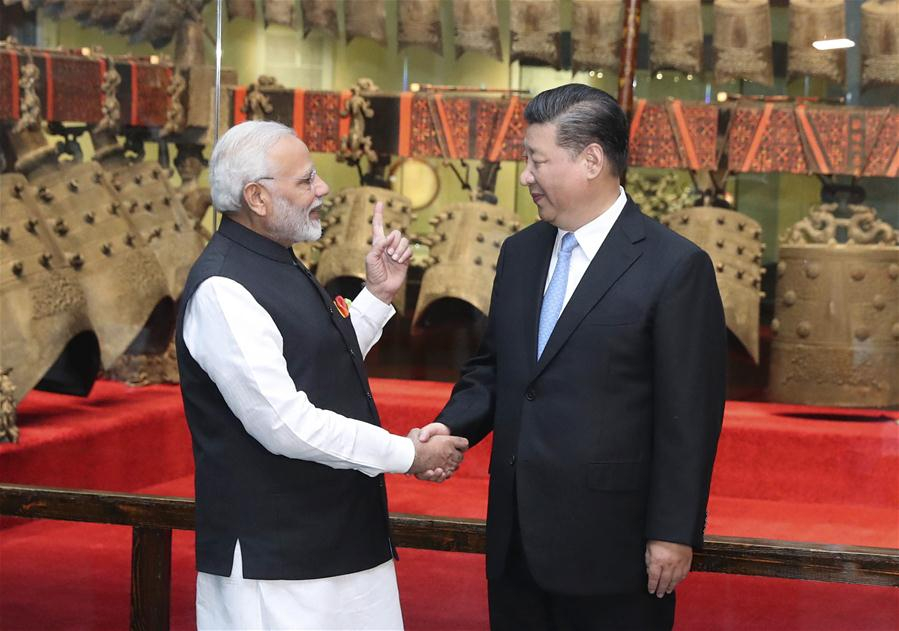
Editor's note: Rabi Sankar Bosu is an Indian contributor to Chinese media outlets. He writes about Chinese politics, social and cultural issues, and China-India relations with a special interest in the Belt and Road Initiative. The article reflects the author's views, and not necessarily those of CGTN.
This year marks the 19th anniversary of the Shanghai Cooperation Organization (SCO) and taking the baton of the SCO from Kyrgyzstan. Russia is hosting the 20th meeting of the Council of Heads of State of the SCO via video link on November 10 in Moscow in its capacity as chair of the influential regional security bloc which consists of eight countries, namely China, Kazakhstan, Kyrgyzstan, Russia, Tajikistan, Uzbekistan, India and Pakistan with 44 percent of the world's population and over 20 percent of global GDP.
This year's SCO Leaders' Summit takes place at a critical time in the history of the SCO when the COVID-19 pandemic has significantly wrecked global economy. The meaning of globalization has recently encountered opposition in the West, and of course, the new diplomatic era under Joe Biden as the projected winner of U.S. election.
Since its establishment in 2001 in Shanghai, China has played an important role in deepening regional coordination among other SCO member countries as well as with its four observer states and six dialogue partners. Holding high the banner of the "Shanghai Spirit" which features mutual trust, mutual benefit, equality, consultation, respect for cultural diversity and pursuit of common development, the eight-nation regional grouping has proved its effectiveness in practical and concrete cooperation between the member states and firmly supported one another not to allow foreign interference in the internal affairs of SCO member countries over years.
Two years ago during the 18th SCO summit in Qingdao in east China's Shandong Province, Chinese President Xi hailed the bloc's guiding "Shanghai Spirit" by stating that "the Shanghai Spirit is our shared asset, and the SCO is our shared home." He is absolutely right as over the past two decades, the SCO has created a new model for regional cooperation against the "three evils" of terrorism, separatism and extremism. It has made new contributions to peace and development in the region setting aside their political differences.
The border clash between Indian and Chinese troops along the Line of Actual Control (LAC) in Ladakh region a few months ago has brought challenges to the Sino-India bilateral relations, all eyes are now fixed on the first interaction between Prime Minister Modi and President Xi at the Moscow SCO Summit. Will they be able to reset ties?
Since it is a virtual summit, there is no space for bilateral meetings between the two leaders. But looking back at the bilateral meeting between Indian Foreign Minister S. Jaishankar and Chinese State Councilor and Foreign Minister Wang Yi in Moscow on 10 September on the sidelines of the SCO meeting, a new mood of renewed optimism in Sino-Indian relations has surfaced now as the five-point agreement adopted at the foreign ministers' meet reaffirmed both sides should take guidance from the series of consensus of the leaders on developing India-China relations, including not allowing differences to become disputes.
As such, the first virtual meeting between PM Modi and President Xi since the start of the border standoff this May will carry great significance in promoting the in-depth development of India-China relations generated by two informal summits between the two leaders at Wuhan in April 2018 and Chennai in October 2019. No doubt, the SCO will be a good choice for India and China for the resumption of one-on-one meetings between the two leaders in order to boost mutual trust and cooperation despite ongoing frictions drawing inspiration from the wisdom of the "Shanghai Spirit" while adding new vitality into the development of the SCO.

Chinese President Xi Jinping (R) shakes hands with Indian Prime Minister Narendra Modi during their visit to an exhibition of cultural relics at Hubei Provincial Museum in Wuhan, capital of central China's Hubei Province, April 27, 2018. /Xinhua Photo
Chinese President Xi Jinping (R) shakes hands with Indian Prime Minister Narendra Modi during their visit to an exhibition of cultural relics at Hubei Provincial Museum in Wuhan, capital of central China's Hubei Province, April 27, 2018. /Xinhua Photo
On the other hand, although the accession of India and Pakistan to the prestigious SCO consortium as full members in 2017 at the Astana summit in Kazakhstan has added to the political dimension of the organization, it's a bitter truth that the bilateral dialogue between the two South Asian rivals has been suspended since January 2016. It's not surprising that two close neighbors regularly blame each other for violence in each other's countries. Pakistan has demanded to restore the rights of the Kashmiris under Article 370 of the Indian Constitution while accusing India of supporting the separatist insurgents in Balochistan. On the other hand, India blames Pakistan's support to militant groups in the Kashmir region by repeating that "terror and talks can't go together."
As per the framework of the SCO, a third party could step in to prevent an outbreak of conflict between the two countries. Therefore, China as the founding member of this organization and a "common friend" to both countries can play a constructive role in bringing India and Pakistan to the talking table under the auspices of the SCO. If the two countries do not engage in bilateral talks in the near future or cooperate on trade and anti-terrorism issues and put aside their long conflict and rivalry, the very purpose of their entry into the SCO's fold will remain unfulfilled.
The SCO is a cooperation forum, not a place for leadership competition. Therefore, facing the foggy weather of trade protectionism, bullying, terrorism and extremism, and of course, the ongoing pandemic, the SCO needs to improve its network of partnerships to establish a community with a shared future for mankind. It is expected that amid a changing international landscape, the SCO heads of state will shoulder the expectations of the people of the SCO countries taking solid actions for a brighter future of SCO, leaving aside their political differences for the greater good.
(If you want to contribute and have specific expertise, please contact us at opinions@cgtn.com.)

